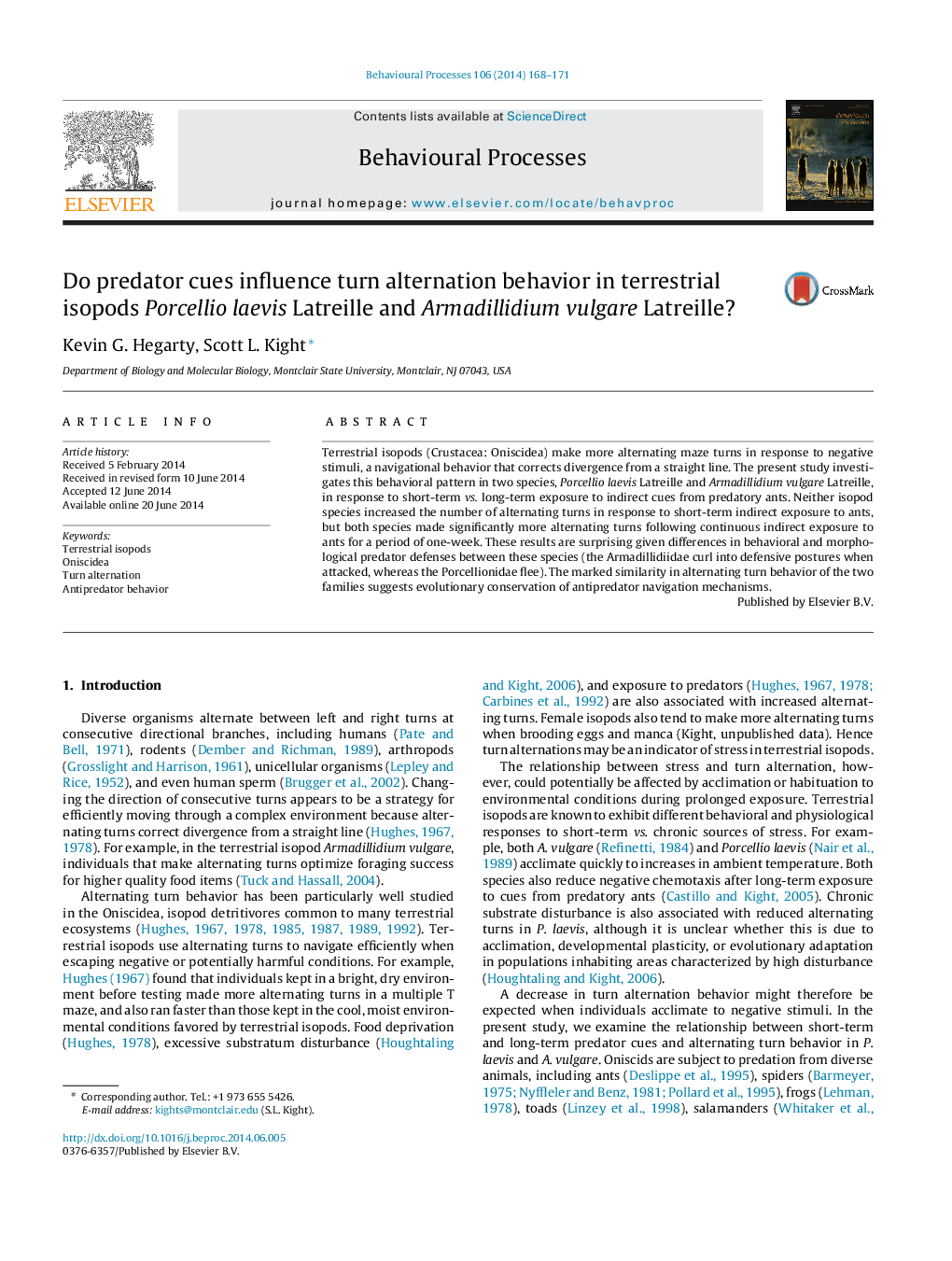| Article ID | Journal | Published Year | Pages | File Type |
|---|---|---|---|---|
| 2426674 | Behavioural Processes | 2014 | 4 Pages |
•We examine turn alternation behavior and exposure to predators in terrestrial isopods.•We compare species with different antipredator behaviors and morphologies.•Both species increase turn alternations after chronic indirect exposure to ants.•Armadillidium vulgare and Porcellio laevis did not exhibit differences in turn alternation.
Terrestrial isopods (Crustacea: Oniscidea) make more alternating maze turns in response to negative stimuli, a navigational behavior that corrects divergence from a straight line. The present study investigates this behavioral pattern in two species, Porcellio laevis Latreille and Armadillidium vulgare Latreille, in response to short-term vs. long-term exposure to indirect cues from predatory ants. Neither isopod species increased the number of alternating turns in response to short-term indirect exposure to ants, but both species made significantly more alternating turns following continuous indirect exposure to ants for a period of one-week. These results are surprising given differences in behavioral and morphological predator defenses between these species (the Armadillidiidae curl into defensive postures when attacked, whereas the Porcellionidae flee). The marked similarity in alternating turn behavior of the two families suggests evolutionary conservation of antipredator navigation mechanisms.
